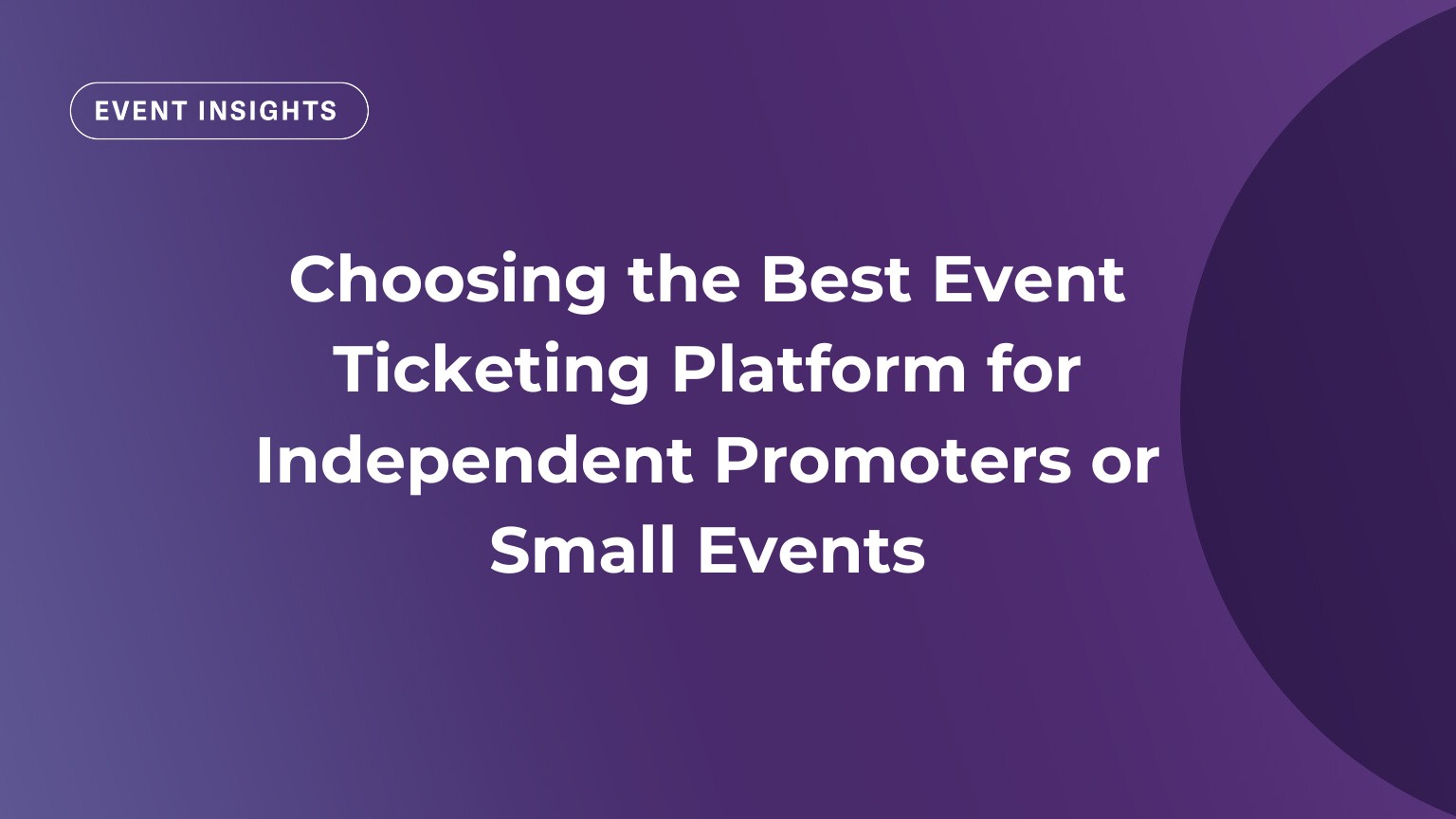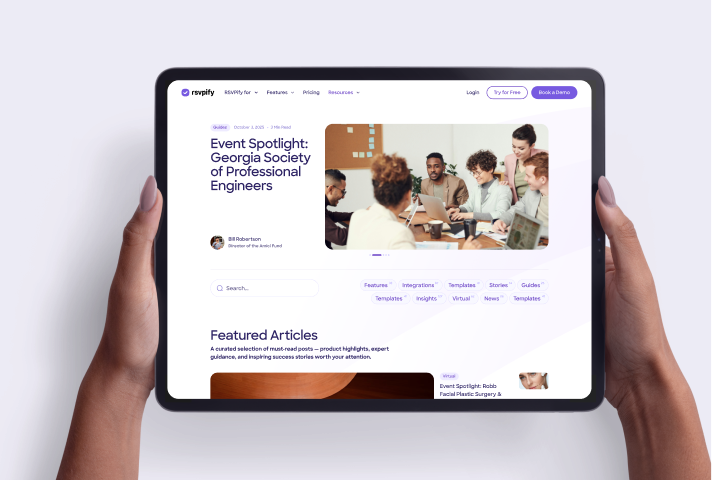Back to all posts
August 27, 2025

While industry behemoths like Ticketmaster and Eventbrite are household names, the landscape of ticketed events goes far beyond massive concerts or trade shows. For many independent promoters or those hosting launch parties, independent movie premiers, or community events, the major ticketing platforms can be cost prohibitive or overwhelm with features.
For independent promoters or casual event planners who need a simple way to sell tickets or collect payments for their events, there's a wider landscape of event ticketing platforms that offer a much better route.
That's why we've created this guide for you - to help navigate beyond the brand names to choose the best event ticketing platforms that offer customization, control, affordable pricing, and more that can help support artists, promoters, business owners, and event organizers who need powerful ticketing technology without eye-propping prices. Let's dive in.
These features are essential for smaller-scale operations:
Free tier or low fees: Keeps costs manageable when budgets are tight. But keep a close eye on fees - many platforms that tout free event ticketing are actually counting on promoters pushing transaction fees forward onto attendees.
Easy setup: This one goes without saying - if your event ticketing tool requires coordination with customer support, you might want to look elsewhere.
Custom-branded event pages: Keep your music or pop-up event looking professional. Pay attention specifically to whether the ticketing platform requires their branding to appear on your page - instead of allowing yours to remain front and center.
Mobile-friendly checkout: With more browsing than ever happening on mobile devices, one of the easiest ways to increase ticket sales is a convenient mobile ticketing process.
Simple check-in tools: Some event ticketing apps offer QR code check-in, making life much easier for door staff or venue staff.
Built-in marketing tools: Social sharing and promo codes are a must when choosing a ticketing platform. Some tools also offer amplification on their own website for you to promote your event.
Basic reporting: Ticket sales, source tracking, percentage sold at a glance, and other basics should be standard. But be careful - some ticketing tools paywall exporting your event data, making it harder than necessary to review your box office or revenue reports.
Why it works: Fast, intuitive setup with strong branding and essential tools—great for budget-conscious promoters.
Features: Free tier available, branded event pages, RSVP/ticket flows, promo code support, guest management, mobile compat.
Pricing: Starts with a free plan; scalable pricing as events grow.
Why it works: Ultra-affordable and simple—ideal for single-event organizers and one-off shows.
Features: Flat ticketing fee, easy setup, reserved seating, timed entry, multi-event support.
Pricing: Flat $1 per ticket (up to $3.50 with feature add-ons). No setup or monthly fees.
Why it works: Highly customizable without gatekeeper sales reps—great for DIY promoters.
Features: Modern form builder, automation workflows, transparent pricing.
Pricing: 99¢ per ticket + credit card processing (2.9% + 30¢).
Why it works: Free to use with no organizer fees—perfect for grassroots events and local gatherings.
Features: Instant payouts, offline scanning, simple page setup.
Note: Pricing implied free with attendee-paid processing fees.
Why it works: Event website builder with built-in ticketing—great for boutique and branded local events.
Features: Visual design, custom domains, UX-centric ticketing.
Pricing details not publicly listed—typically low-cost entry or subscription.
About the Author
Adam Hausman co-founded RSVPify in 2013 and has been passionate about event tech and ticketing software ever since. Also founder of Greenlight Growth Marketing, he holds degrees from Indiana University (BA English/Psychology 2008) and the University of Illinois-Chicago (M.Ed. Secondary Education 2012). He lives in Maine with his wife, 2 kids, and 2 annoying cats.
Get the latest product updates, event planning tips, and industry insights — straight to your inbox.
You can unsubscribe at any time. Your email will only be used to send RSVPify updates and will never be shared.
